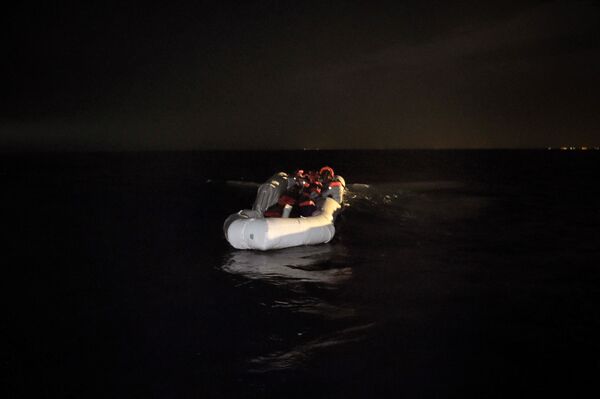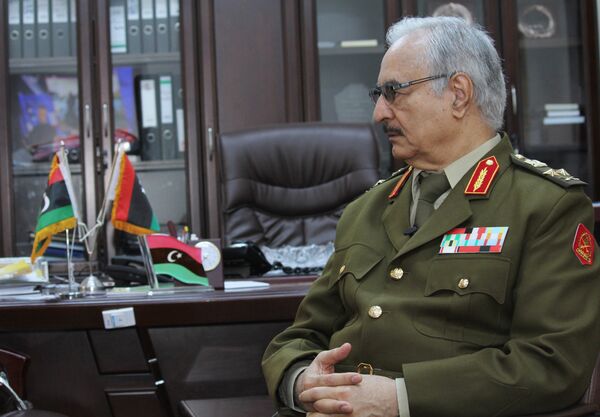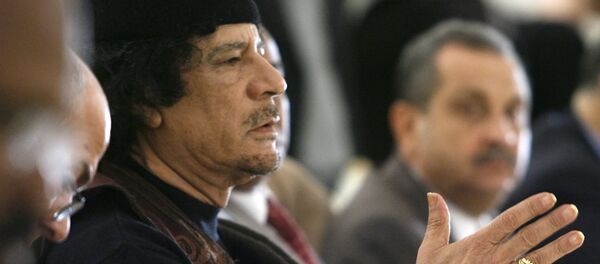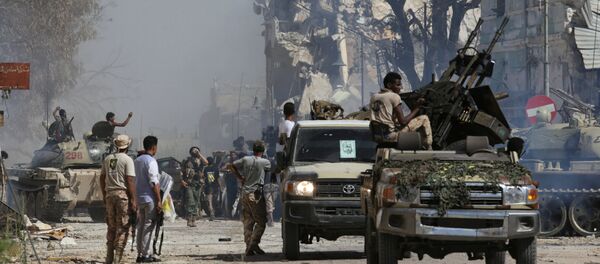According to Bychkov, Haftar could become Brussels' last hope of stopping the continuing flow of refugees from Libya to the European Union.
Indeed, the refugee crisis is still raging and European decision-makers appear to be not so enthusiastic about receiving migrants as they used to be before.
"Brussels is working out measures to help Italy, which has faced an unprecedented influx of refugees from African countries. In the first half of 2017, about 85 thousand [asylum seekers] arrived at the Apennines from Africa, which is one third more than in the same period last year. Italy is no longer able to cope with the refugee tide and asks for help from other members of the European Union," Bychkov wrote.
Indeed, according to the International Organization for Migration (IOM), over 100,000 migrants and refugees arrived in Europe via the Mediterranean Sea since the beginning of 2017, with the majority landing in Italy.
"The Italian government should threaten to leave the EU if Europe does not stop ships full of immigrants from arriving at our shores but this government is just a puppet manipulated by the globalist powers and cannot do anything," Savoini said.
Bychkov noted that Germany has already signaled that it would raise the quota for accepting refugees arriving to Europe through Italy from 500 to 750 people a month to cope with the issue. In addition, Berlin pledged to provide financial assistance to Rome.
However, other European countries are not rushing to accept the increasing flow of asylum seekers. Quite the opposite: some of them have recently toughened their migration policy.

The political analyst noted that in Italy migrants have recently lost their right to appeal an asylum denial, while France has narrowed the list of countries which remain dangerous for returnees.
"[For its part] Hungary refuses to accept any migrants even under the threat of sanctions from Brussels. As you know, the Hungarian authorities have built a fence on the border with Serbia," the analyst highlighted.
But that is not all.
Although Germany has long been regarded as a refugee-friendly country, it has started to tighten the screws on the migration policy.
"Last year [Germany's] authorities refused to grant asylum to almost half of the 700,000 who filed the petition. In 2016 the Germans sent home a record number of refugees — 80 thousand people. It is expected that this year the record will be beaten," Bychkov noted.
Since the collapse of the government of Muammar Gaddafi the country has been engulfed by civil war. To complicate matters further, it has several centers of power, represented by both Gaddafi's opponents and loyalists.
"In the west of the country, in Tripoli, there is the UN-recognized 'national unity government'. The second center [of power] is the parliament [The House of Representatives], located in the city of Tobruk, in the east [of the country]. At the same time, a significant part of Libya is controlled by radical Islamists associated either with Daesh [ISIS/ISIL] or Al-Qaeda," Bychkov elaborated.
However, according to the political analyst, yet another force deserves special attention: the Libyan National Army led by Gen. Khalifa Haftar.
It was reported Wednesday that the Libyan National Army had fully liberated the Libyan port city of Benghazi from Islamists.

On Sunday, Crown Prince of Abu Dhabi and Deputy Supreme Commander of the UAE Armed Forces Sheikh Mohamed bin Zayed Al Nahyan congratulated Haftar on the victory.
Interestingly enough, the influential general is considered to be a "pro-Russian" leader in the West: indeed, Haftar got his education in the USSR and in 2016 visited Moscow twice for negotiations with Russian officials.
At the same time, however, observers call attention to the fact that Haftar spent almost 20 years in the US and, according to some reports, even collaborated with the Central Intelligence Agency (CIA).
"Brussels hopes, that with Haftar's coming to power, the influx of African refugees to Europe from Libya will stop, as it was in the days of Muammar Gaddafi," Bychkov noted, recalling that the general was one of Gaddafi's associates.
The question then arises, whether it was really worth ousting and murdering the Libyan leader back in 2011, the political analyst remarked.





